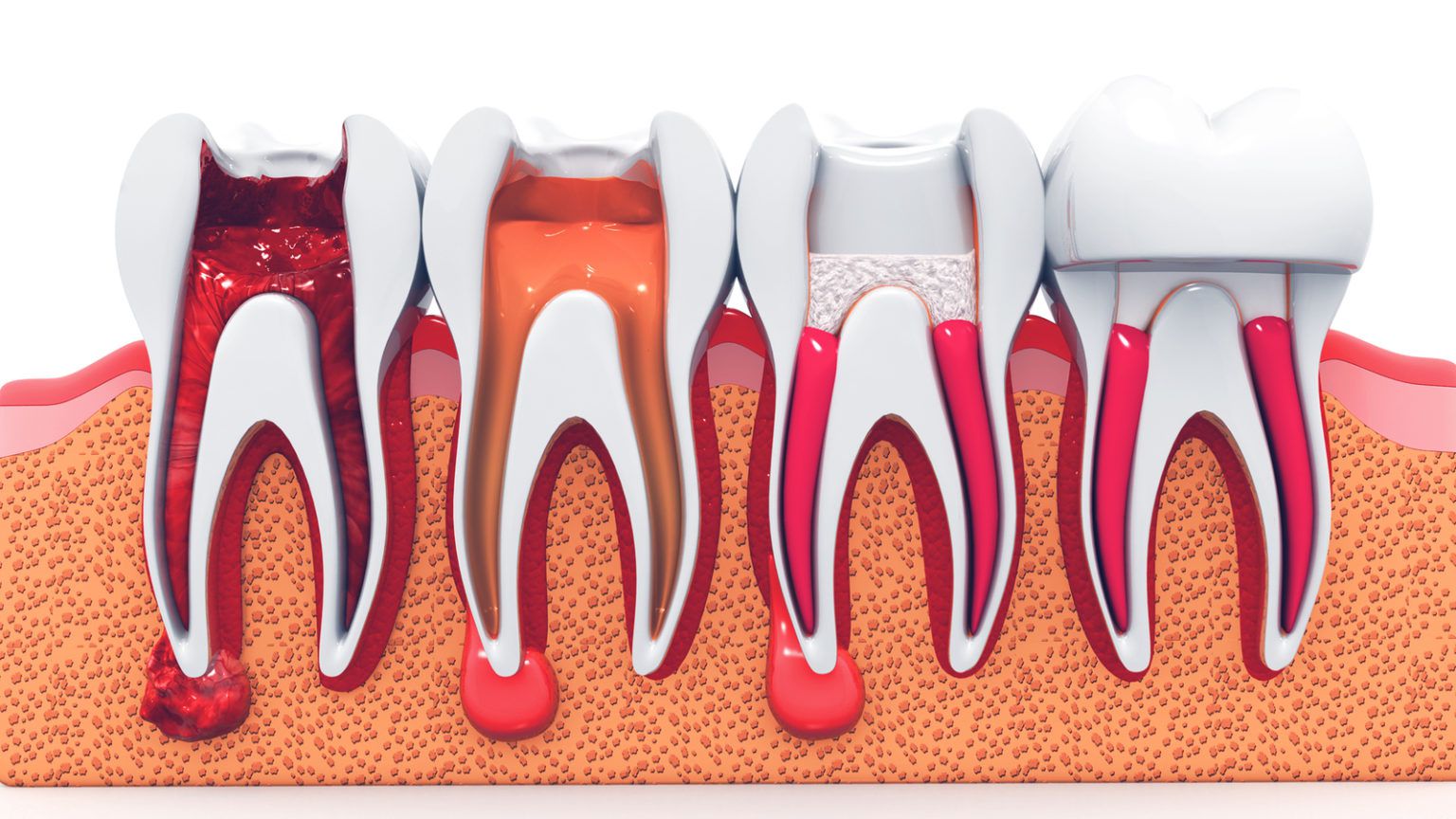“Root canal” is a term that can refer to the spaces inside a tooth that contain the living pulp, and to the procedure that is used to treat teeth in which this material has become infected. The blood vessels and nerves contained inside these canals help to sustain a tooth while it is growing. Once the tooth has matured, they serve only to provide sensation to the tooth, allowing it to recognize temperature fluctuations, pressure, etc. Root canals help to eliminate the infected pulp and preserve the tooth in cases where it may otherwise need to be extracted.
What Causes A Root Canal To Be Necessary?
There are three conditions that can lead to a root canal, becoming a necessary treatment for dental patients. The most common is decay caused by poor dental hygiene, weak enamel due to genetics, or trauma, creating places for decay to form. Trauma to the tooth can also result in it becoming oversensitive to heat and cold, introduce avenues of infection, and be the cause of significant pain. Some medical conditions can also lead to the death or ailing of the pulp in the tooth, necessitating the removal of this pulp to preserve the health of the tooth.
How Will I Be Aware I Need A Root Canal?
The surest way of knowing if you’re going to need a root canal is to receive advice from your dentist, indicating that one is necessary. If you’re wondering if you should visit a dentist to speak to them about it, you should watch out for the following signs:
Severe Tooth Pain – When pain is present, especially when pressure is put on the tooth, such as when eating.
Temperature Sensitivity – When cold and heat result in discomfort, especially discomfort that lingers after the source has been removed.
Bumps on the Gum – If you develop a soft pocket on the gum, similar to a pimple, you may have an abscess.
Gums that are Swollen or Tender Near The Pain Source – If your gums are tender or swollen, you likely are suffering from gum disease, one indicator of infection.
What Happens During A Root Canal?
Root Canals are a fairly typical procedure that is used to remove the infected pulp from a tooth, reinforce, and seal it to eliminate the need to extract the tooth. Saving a patient’s natural teeth is the primary goal of a dentist, and this is one treatment that saves teeth that otherwise would be beyond saving. The procedure involves a few short steps:
Exam and Imaging – During your preparatory visit, you’ll undergo an exam, including imaging, to determine the severity of the infection.
Easing Discomfort – Anesthetic will be administered on the day of the treatment in preparation for the procedure. A dental dam will then be put in place to keep the area dry.
Clearing The Tooth – A hole will be drilled into the tooth to give the dentist access to the pulp and nerve tissue inside. The pulp will be cleaned out, and the area filled with gutta-percha, and a crown is put in place to restore the tooth’s structure and appearance.
Follow-Up – During your next visit, the dentist will examine the repaired tooth to ensure that the root canal was successful.
If you’ve got questions about root canals and want a friendly and professional touch, call Dr. Alireza Movassaghi at the Torrance Dental Associates in Alameda, CA. They’ll schedule you for an appointment and get you on the way to eliminating pain and preserving your natural teeth.

